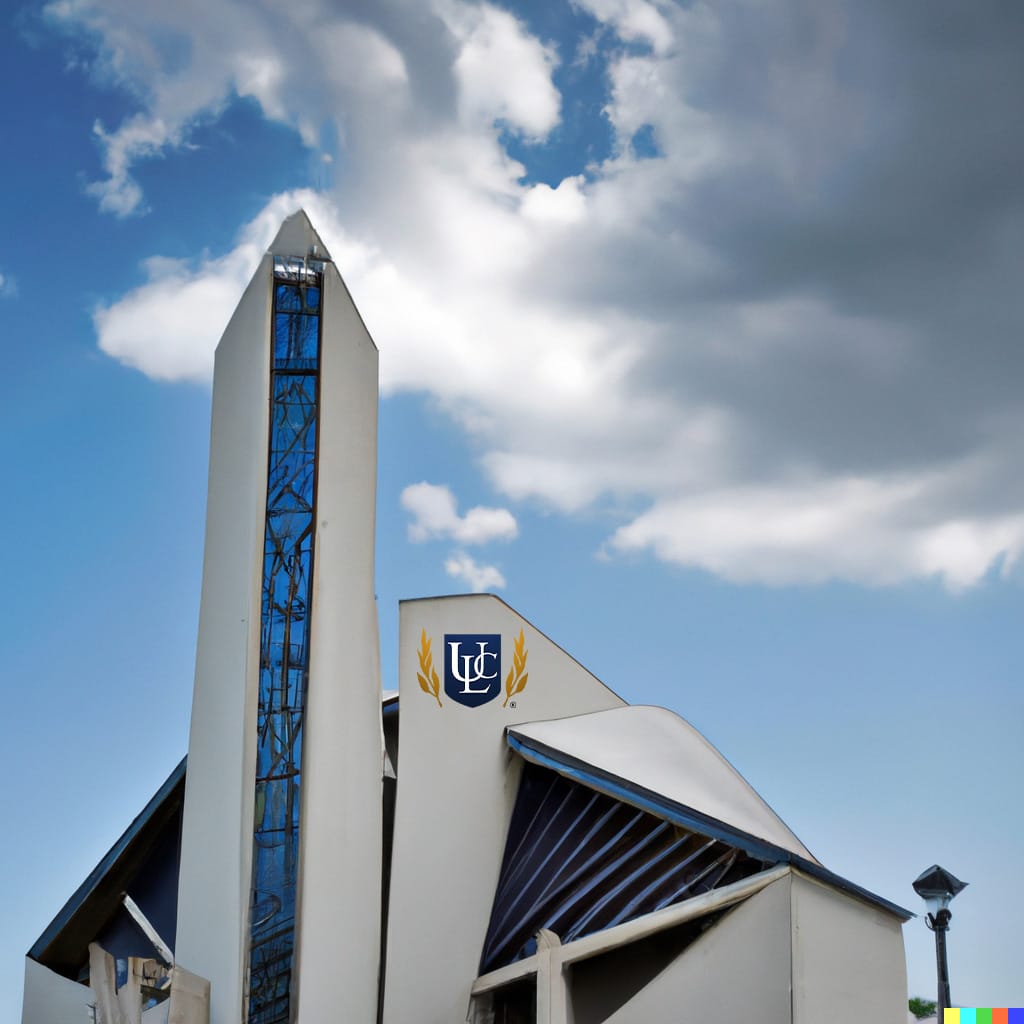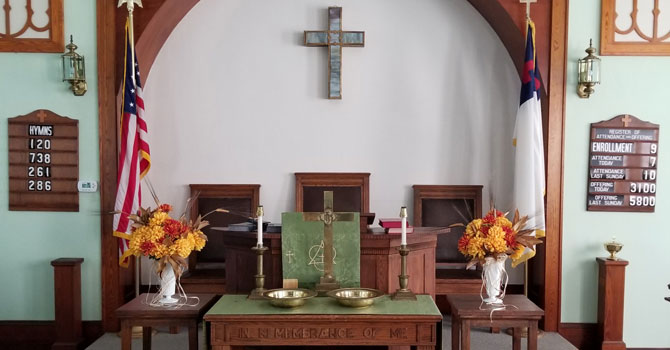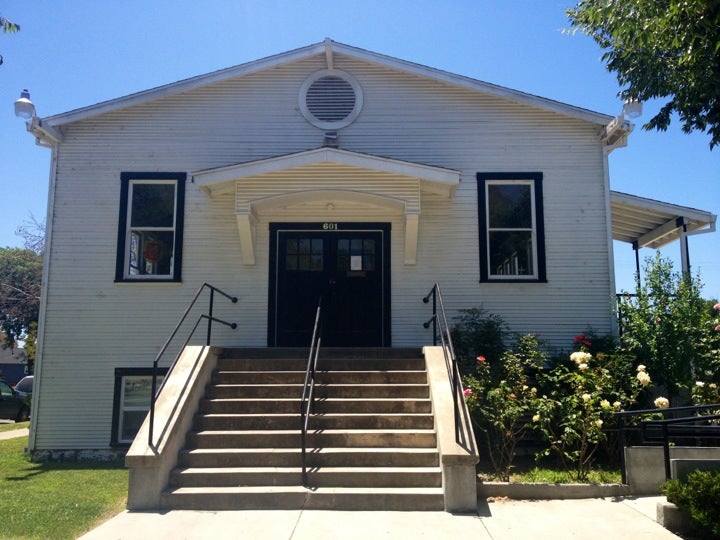Yes, the Universal Life Church is generally recognized as a legal entity in the United Kingdom, allowing its ministers to perform certain religious ceremonies like weddings.
The Universal Life Church (ULC) is not officially recognized as a religious institution in the United Kingdom, and its legal status for conducting religious activities may be limited.
In the UK, religious organizations must meet certain criteria and go through a process to gain legal recognition and certain privileges, such as tax-exempt status.
The ULC, which is known for its online ordination services, has faced varying degrees of recognition in different countries.
It’s important to note that being ordained by the ULC or a similar organization may not automatically grant you the legal authority to perform marriages or other religious functions in the UK.
Understanding the ULC

The Universal Life Church (ULC) is a non-denominational religious organization that is known for its inclusive and liberal approach to ordination. It was founded in 1959 by Kirby J. Hensley in Modesto, California.
The ULC’s core principles and beliefs are rooted in the idea of religious freedom, universal love, and the belief that everyone has the inherent right to become a minister and practice their own spiritual beliefs.
Here’s some background on the Universal Life Church:
History:
The ULC was founded by Kirby J. Hensley, who was inspired by his experiences in the military and a desire to create an organization that promoted religious freedom and inclusivity.
The church’s beginnings were marked by simplicity and a lack of traditional religious hierarchy, reflecting Hensley’s belief in individual empowerment.
Over the years, the ULC has grown into a global organization with millions of members and has established a presence both online and through physical congregations.
Core Principles:
- Inclusivity: One of the ULC’s central principles is that all individuals, regardless of their background, beliefs, or religious affiliations, have the right to become ordained ministers and practice their own unique spirituality.
- Freedom of Belief: The ULC respects and celebrates diverse belief systems and does not impose any specific dogma or religious doctrine on its members.
- Universal Love: The church promotes the idea of universal love and encourages its members to be compassionate, kind, and accepting of others.
The ULC is particularly known for its online ordination services. They have made it extremely easy for individuals to become ordained ministers through their website, often with little or no cost involved.
This has earned the ULC a reputation for being an accessible and open platform for people seeking to officiate at weddings, perform religious ceremonies, or exercise their spiritual beliefs in a formal capacity.
The online ordination process usually involves a simple application form on the ULC website, where applicants provide their basic information.
Upon approval, the ULC grants ordination, allowing individuals to legally perform ceremonies like weddings, funerals, and baptisms in most states in the United States.
However, it’s important to note that the legality of online ordination varies by jurisdiction, and some states may have specific requirements or restrictions.
Legal Recognition of Religious Institutions in the UK
In the United Kingdom, religious organizations can gain legal recognition, which is important for several reasons, including tax benefits, the ability to perform legally recognized marriages, and the protection of religious freedoms.
Here is an overview of the process and criteria for legal recognition of religious organizations in the UK:
Registration as a Charity:
Religious organizations commonly gain legal recognition through charity registration with relevant authorities like the Charity Commission for England and Wales, OSCR in Scotland, or the Charity Commission for Northern Ireland.
To be eligible for charity status, a religious organization must demonstrate that it serves a charitable purpose, such as the advancement of religion, the relief of poverty, or the promotion of education.
The organization must also have governance structures and processes that adhere to legal and regulatory requirements.
Registration as a Place of Worship:
Religious institutions can also pursue recognition as a “place of worship” under the respective Places of Worship Registration Acts of 1855 (England and Wales) or 1862 (Northern Ireland).
Registration as a place of worship is a separate process from charity registration and allows religious institutions to benefit from certain legal protections, such as the right to conduct legally recognized marriages.
To be eligible, a place of worship must meet certain criteria, including regular and public religious worship.
Legal Recognition for Marriage:
To conduct legally recognized marriages in the UK, religious organizations must be registered to solemnize marriages.
This requires meeting specific legal requirements and having a place of worship that is registered for marriages under the Marriage Act 1836 (for England and Wales) or the Marriage (Approved Places of Worship) Regulations (for Scotland).
Ministers or officiants within recognized religious organizations must also be authorized to perform marriages.
Importance of Legal Recognition for Religious Institutions:
Tax Benefits: Legal recognition as a charity allows religious organizations to benefit from tax exemptions and reliefs, including relief from income and capital gains tax, which can significantly aid their financial sustainability.
Legally Recognized Marriages: Being registered to perform legally recognized marriages allows religious institutions to conduct legally binding wedding ceremonies.
This is important for both the institution and the couples, as it ensures that the state recognizes the marriage.
Protection of Religious Freedoms: Legal recognition can help protect the religious freedoms and rights of religious institutions and their members.
It provides a legal framework for religious practices and safeguards against discrimination or interference from the government.
Credibility and Trust: Legal recognition often enhances the credibility and trustworthiness of a religious organization, as it implies adherence to certain standards and regulations, promoting transparency and accountability.
In summary, legal recognition for religious organizations in the UK involves registration as a charity and, if desired, as a place of worship.
It is crucial for accessing various benefits and protections, ensuring the legality of marriages performed by the institution, and safeguarding religious freedoms and rights.
ULC’s Legal Status Worldwide
The Universal Life Church (ULC) faces varying recognition and legal status in different countries around the world.
This is due to the differences in legal systems, religious freedom laws, and the specific requirements for religious organizations in each country. Here is an overview of how the ULC’s legal status varies and some notable challenges and controversies:
United States:
The ULC is most widely recognized and established in the United States. It has successfully gained legal recognition in many states, allowing its ordained ministers to officiate at weddings and perform other religious ceremonies.
However, the legal recognition of ULC ordinations varies from state to state. Some states readily accept ULC ordinations, while others may have stricter requirements or limitations.
Some states have challenged the ULC’s online ordination process in court.
Canada:
The ULC also operates in Canada, where its legal status may vary from province to province. In some provinces, ULC ministers can legally officiate at weddings, while in others, they may face restrictions or additional requirements.
United Kingdom:
In the United Kingdom, the legal recognition of religious organizations, including the ULC, is based on the criteria mentioned earlier.
If a religious organization meets the requirements, it can gain legal recognition and benefits, such as charity status.
Australia:
Australia has specific regulations for religious organizations, and the ULC’s recognition may not match that in the United States. Its legal status can differ by state or territory.
Other Countries:
In many other countries, the ULC may not be as well-known or may face legal challenges when attempting to gain recognition. Local laws and regulations play a significant role in determining the ULC’s legal status.
Legal Challenges and Controversies:
The ULC has faced legal challenges in various states in the United States. Some states have challenged the validity of ULC ordinations, especially when they are obtained solely to officiate at weddings.
These challenges have resulted in court cases and debates about the legitimacy of online ordinations.
The ULC’s inclusive and liberal approach to ordination has also generated controversies and debates about the sincerity and authenticity of its ministers.
Critics argue that the ease of obtaining ULC ordination can lead to individuals using it for personal gain without a genuine commitment to religious ministry.
In summary, the Universal Life Church’s legal status varies significantly from one country to another and even within different regions of the same country. Legal recognition is often contingent on the specific laws and regulations of each jurisdiction.
The ULC has faced legal challenges and controversies, particularly in states where its online ordination process has been scrutinized or contested. Its status and acceptance continue to evolve in response to legal, cultural, and societal factors.
The ULC in the UK
The Universal Life Church (ULC) has a presence in the United Kingdom, but its legal status and recognition can vary depending on the specific circumstances and local regulations. Here is a general overview of the ULC’s status in the UK:
Legal Recognition: The ULC operates in the UK, where people can become ordained ministers online.
Ordained ministers are typically authorized to conduct religious ceremonies like weddings, funerals, and baptisms.
However, the extent of legal recognition and acceptance can vary by jurisdiction.
Legal Limitations or Restrictions: The legal status of ULC ministers in the UK can be subject to some limitations or restrictions. These may include:
- Marriage Laws: The recognition of ULC ministers for the solemnization of marriages can vary by region.
In some parts of the UK, ULC ministers may need to register as a religious officiant or adhere to specific requirements to officiate weddings legally.
- Charity Status: To gain full legal recognition and enjoy certain benefits, religious organizations in the UK, including the ULC, may need to meet the criteria for charitable status.
This typically requires demonstrating that the organization serves a charitable purpose and complies with relevant laws and regulations.
- Legal Recognition: The level of legal recognition and acceptance of the ULC in the UK can differ from place to place.
Some areas may have more accommodating regulations, while others may have stricter requirements or limitations regarding the activities of ULC ministers.
It’s important to note that the legal landscape for religious organizations can change over time due to legislative updates and court decisions.
The Implications for ULC Ordained Ministers

Discuss the potential limitations and challenges ULC-ordained ministers may face in the UK. Highlight the importance of understanding the legal status of those seeking to perform religious functions.
ULC-ordained ministers in the UK may face certain limitations and challenges due to the varying legal status and recognition of the Universal Life Church and its ministers in different regions of the country.
It is important for individuals seeking to perform religious functions as ULC ministers to understand the legal landscape to ensure that their activities are conducted within the bounds of the law. Here are some potential limitations and challenges:
Legal Recognition for Marriages:
ULC ministers’ authorization to officiate weddings can differ from one area to another.
In some areas, they may be recognized as authorized officiants for marriage ceremonies, while in other regions, their authority to perform legal marriages may be contested or subject to specific requirements.
Legal Obligations and Requirements:
ULC ministers, like ministers of other religious organizations, may have legal obligations and requirements when it comes to solemnizing marriages, including the completion of marriage certificates, reporting marriages to the appropriate authorities, and adhering to any local marriage laws and regulations.
Charity Status and Tax Benefits:
Religious organizations, including the ULC, may need to meet specific criteria to qualify for charitable status, which can provide tax benefits and other advantages. Failure to comply with these requirements can limit the organization’s financial and legal standing.
Public Perception and Acceptance:
The ULC’s ease of online ordination has led to some public skepticism and questions about the authenticity and commitment of its ministers.
ULC ministers may need to address public perceptions and demonstrate their genuine dedication to their role as religious officiants.
Legal Changes and Updates:
Laws and regulations related to religious organizations and ministers can change over time. ULC ministers should stay informed about legal developments that may affect their activities, including changes in marriage laws, tax regulations, and charity status requirements.
The Importance of Understanding the Legal Status:
Understanding the legal status of ULC-ordained ministers in the UK is crucial for several reasons:
Compliance with the Law: Complying with local laws and regulations ensures that ULC ministers can perform religious functions, such as officiating weddings, in a legally valid and recognized manner.
Protection of Rights: Knowing their legal status and rights allows ULC ministers to protect their religious freedoms and perform their duties without facing legal challenges or restrictions.
Public Trust and Credibility: Understanding the legal landscape and adhering to legal requirements can help ULC ministers build trust and credibility with the individuals and couples they serve.
Avoiding Legal Issues: By being informed about potential limitations and challenges, ULC ministers can take steps to avoid legal issues and ensure that their religious activities are conducted smoothly and in accordance with the law.
FAQs
Is the Universal Life Church (ULC) recognized as a religious institution in the UK?
No, the ULC is not officially recognized as a religious institution in the UK.
Are ULC-ordained ministers allowed to officiate at funerals in the UK?
Yes, ULC-ordained ministers are generally allowed to officiate at funerals in the UK, but the specific requirements and practices may vary depending on local authorities and individual funeral homes.
Can ULC-ordained ministers establish tax-exempt religious organizations in the UK?
No, ULC-ordained ministers cannot automatically establish tax-exempt religious organizations in the UK.
The process for establishing a tax-exempt religious organization in the UK involves specific legal requirements and regulatory approvals, which are unrelated to one’s ordination status.
Do ULC-ordained ministers in the UK have the same legal rights and privileges as ministers from recognized religious institutions?
No, ULC-ordained ministers do not have the same legal rights and privileges as ministers from officially recognized religious institutions in the UK.
Is it legal to advertise ULC-ordained services for weddings, baptisms, or other religious ceremonies in the UK?
Yes, it is generally legal to advertise ULC-ordained services for weddings, baptisms, or other religious ceremonies in the UK.
While ULC-ordained ministers can offer their services, they should be aware of the legal implications and any local requirements, which may vary by jurisdiction.
Can ULC-ordained ministers apply for visas or residence permits based on their religious work in the UK?
The ability to apply for visas or residence permits may depend on various factors, including the recognition of the religious work performed by ULC-ordained ministers.
Do ULC-ordained ministers in the UK pay taxes on income earned from religious services?
Yes, ULC-ordained ministers in the UK may be required to pay taxes on income earned from religious services, depending on their individual circumstances and the applicable tax laws.
Conclusion
To sum it up, the Universal Life Church (ULC) exists in the United Kingdom. People can become ULC ministers through its online process, but how they’re seen in the law can differ by where they are.
Being a ULC minister might have limits and difficulties, especially with marriages and legal rules. Understanding the law is important for those who want to do religious work as ULC ministers in the UK.
This helps follow the law, protect rights, and gain the public’s trust. It’s also a way to avoid legal issues and do religious work smoothly.











